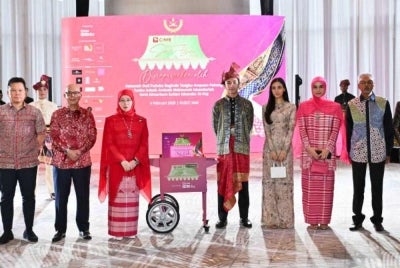'Wake up call', education expert warns of Malaysia's literacy crisis
Early intervention at the preschool level vital to instill foundational literacy skills.
SHARIFAH SHAHIRAH
SHAH ALAM - An education expert has sounded the alarm on Malaysia's literacy crisis, highlighting critical findings from recent studies conducted by the World Bank and Programme for International Student Assessment (PISA).
Prof Datuk Dr Ishak Haron cited recent studies that showed a significant portion of Malaysian students lack essential reading and writing skills.
He recommended for a grassroots approach, stressing the importance of early intervention at the preschool level to instill foundational literacy skills.
"Children can start learning as early as six years old, but starting a bit earlier, such as at five years old and below, is also acceptable.
“However, it's preferable to teach in Malay, avoid borrowing (words) from English. The phonics method can be utilised," he said when contacted recently.

Ishak emphasised the importance of integrating singing and reading techniques when teaching children.
He said their study with students lacked systematicity, although they did explore two or three popular teaching methods worldwide.
Two widely used methods globally were the Alphabet and Phonics method and the Whole Word method.
The Alphabet and Phonics method focused on teaching the ABCs and the sound of each letter.
On the other hand, the Whole Word method involved teaching children to recognise entire words, such as "mother," "father," "table," and "chairs," words that were familiar to children.
He said that when using the whole word method, students grasp the taught concepts by employing flashcards, like table and chair, then progressing to dissecting the words, such as "Table" into "TA-BLE."
He stressed this approach had a long history, particularly in the US during the literacy crisis around 1990, and in the UK, where they assessed the effectiveness of different methods.
Initially, the phonics method was favoured over the whole-word method.
“Alternatively, I advocate for a segmented approach in our education system. We don't necessarily have to combine both methods; they can be taught independently.
“My proposed method entails focusing solely on teaching vowel letters such as A, E, O, and consonant letters like B, C, K, three of each. We begin by mastering these six letters—three consonants and three vowels—then progress to combining them.
“For instance, we learn combinations like BA, BU, BI, and gradually build phrases such as Baba, Ibu, Bubu. Subsequently, we advance to constructing sentences, like 'kuku kaki aku'."
Subsequently, from that time, they could read from books and the key was to enable children to read slowly within two weeks, which built their confidence and motivated further study.
In traditional teaching, students were often asked to memorise all 26 letters of the alphabet.
While some may use singing to aid memorisation, they might forget certain letters, like "K."
Instead of focusing solely on memorisation, Ishak suggested moving directly to reading syllables and combined sentences to enhance learning efficiency.
He highlighted another factor contributing to delayed education was the two years of the Covid-19 pandemic, where 60 per cent of children were unable to attend school due to lockdown measures.
With many children missing out on school during this period of self-isolation, they lacked the foundational skills needed for learning.
Consequently, Ishak added when these children enter school and were presented with the same textbooks as their peers, they struggle to grasp the content due to the absence of foundational knowledge in reading.
Therefore, he urged teachers to prioritise teaching basic skills initially.
“Before delving into more complex subjects like science and geography, children need to acquire a vocabulary of up to 300 words and develop proficiency in reading Malay.
“It is essential to understand that children cannot engage with science or problem-solving activities if they haven't mastered reading skills,” he added.
He said if the nation failed to tackle this learning deficit among us, it would persist as a long-standing challenge.
Without the ability to read, children would find themselves immobilised, unable to progress.
Recently, the report "Bending Bamboo Shoots: Strengthening Foundation Skills" by World Bank report reveals that 24 per cent of Malaysian children starting primary school at age seven lack school-readiness skills due to a lack of preschool education, with 10 per cent of children aged four to six not having access to preschool.
The World Bank suggested enhancing Malaysia's early childhood learning programme while recognising the country's progress in expanding preschool education.
Furthermore, 42 per cent of Malaysian students failed to achieve reading proficiency by age 11, with lower-income families faced a more significant challenge, where 61 per cent lack reading proficiency.
By age 15, Malaysian students lag behind peers from Hong Kong, China, Japan, and Singapore in reading, science, and mathematics.
Limited access to quality early childhood education, teacher preparedness issues, and inadequate performance-tracking systems contributed to poor educational outcomes.
The report recommended expanding access to quality preschool education, implementing standardised learning assessments and providing ongoing teacher professional development based on international best practices.
Download Sinar Daily application.Click Here!














